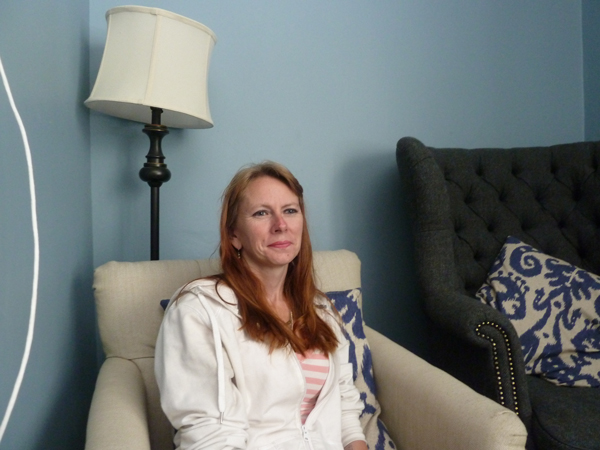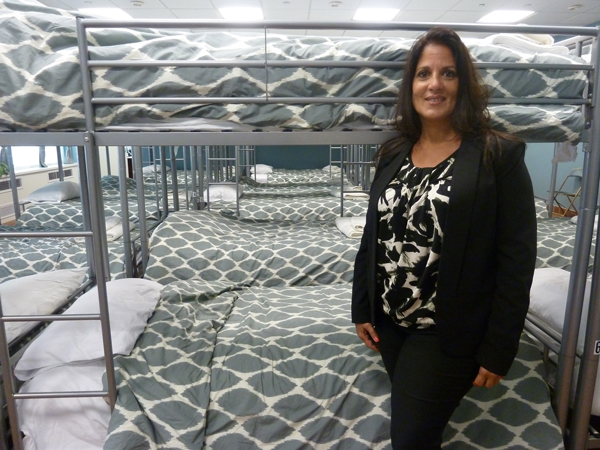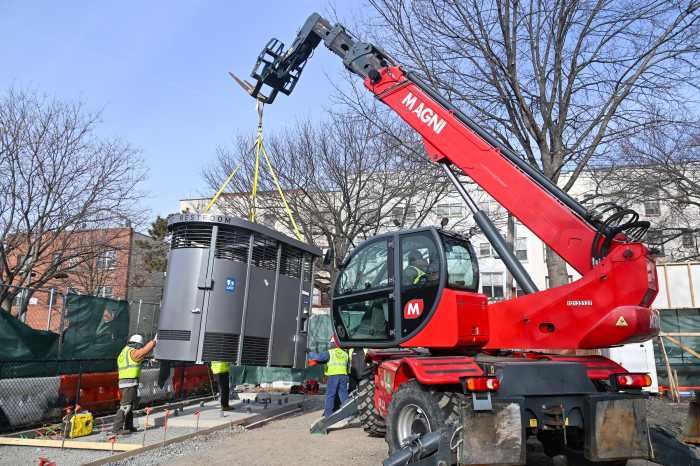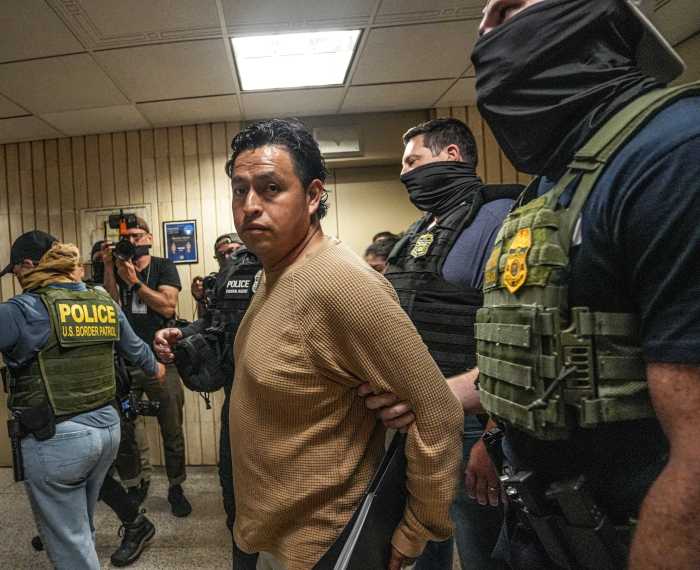
Christiane Fowler has been coming to the New York City Rescue Mission’s women’s shelter since it first opened in June.
BY ROSA KIM | When Christiane Fowler, 40, got to New York City in April, her legs and feet were badly swollen from walking over 600 miles. She had traveled from Pennsylvania to Syracuse in search of a place to live and arrived in New York City by walking and catching rides. When she got here, she had no job and no place to live.
Fowler started going to the New York City Rescue Mission’s food pantry and learned that it would be opening its first women’s emergency overnight shelter in June.
The mission, which opened in 1872, offers food, clothing, shelter, counseling services and medical care at 90 Lafayette St. For 142 years, it had only offered shelter for men. For the first time on June 16th, the mission opened its doors for women to stay overnight. Women are let inside at 4:30 p.m. and have dinner at 5 p.m. They leave after having breakfast at 7 a.m. the following morning. Fowler, one of 65 women who have utilized the shelter since it first opened, described the Mission as a blessing.
“To me, it’s a gift,” she said. “It’s peaceful, you get hot showers, you get food, and if you need someone to talk to, there’s somebody there. It touches your heart when there are actually people that help.”
Fowler, who has two adult children back in her native Florida, said she has heard stories of homeless women holding onto their belongings at other shelters where they would have to worry about physical altercations, thefts and bedbugs. She said the women’s shelter at Rescue Mission is where she feels safe.
“Given the stories I heard, this is the only shelter I prefer to stay at,” Fowler said.
Before the shelter opened, Fowler said she and the other women who come to the shelter have slept in subways and on benches and sidewalks. Spending the night on the streets comes with its discomforts and dangers.
“To me, when I slept on benches, it wasn’t the most comfortable. If you’re not in a shelter, you get harassed,” Fowler said.
According to the Coalition for the Homeless, there are close to 55,000 people sleeping in New York City shelters each night, a 75 percent increase since January 2002 and the highest level since the Great Depression. The Coalition says that evictions are the main causes for the increase.
Marianne Friedman, women’s program director at the mission, said women who come to the shelter range from those in their mid 20s to 70s. Their stories include losing parents, being kicked out of homes and losing jobs. Martin Addison Bowman, intake coordinator at the shelter, said some of the older women have health issues and mental illnesses such as depression and schizophrenia. He has seen elderly women who just got out of the hospital with nowhere to go. As for the younger women, he said the streets are an especially dangerous place.
“They are extremely vulnerable out on the streets. There’s a market out there for prostitution and drugs,” Bowman said.
Fowler, who plans to get her G.E.D. and massage therapy license, regularly helps Friedman make the shelter’s 30 beds and fold the towels. She said she sees this as a way of making her contribution.
“I’ve worked for a hotel. I know how to make beds, I know how to clean. It’s much easier. Then you feel like you’re giving something back to them for giving you a bed and food. And that’s how it should be,” Fowler said.
Reflecting on how becoming homeless has affected her, Fowler said it has made her value compassion even more than before.
“It’s rough but it’s an experience you learn from. You learn how people treat other people. People think just because they’re homeless, they’re criminals but they’re not,” she said. “It’s not the best thing in the world. That could be you one day.”
Friedman, who herself has recovered from drug addiction and depression, said that the most important thing for her is to instill in the women a sense of hope and self-worth.
“I hope to give them that mustard seed of faith, the same that was given to me three and a half years ago when I first went to seek help. There are women here that never came from a loving background. They call me mom. As much as they feel like I’m a blessing to them, they’re a blessing to me,” Friedman said. “I see the light shine onto them and know that they will pass that to another woman on the street.”






































